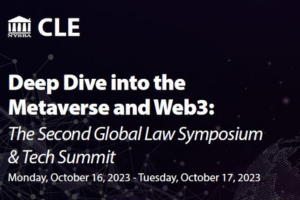Fighting Terrorism Online
Online terrorist content has played a key role in almost every terrorist attack.
The proliferation of terrorist content online continues to be a strong and urgent societal and political concern.
Recent terrorist attacks have demonstrated how terrorists misuse the Internet to groom and recruit supporters, to prepare and facilitate terrorist activity, to glorify in their atrocities and urge others to follow suit and instil fear in the general public.
It has become relatively easy for individuals wishing to join a terrorist organization or travel to a conflict zone to make direct, anonymous contact with a terrorist recruiter. In order to address this threat, there is an urgent need to strengthen national, regional and international cooperation in countering the use of the Internet and social media for terrorist purposes, in particular foreign terrorist fighter recruitment (in its resolution 2178 (2014), the United Nations Security Council defines “foreign terrorist fighters” as follows: “individuals who travel to a State other than their State of residence or nationality for the purpose of the perpetration, planning or preparation of, or participation in, terrorist acts or the providing or receiving of terrorist training, including in connection with armed conflict”). Recruiting members and supporters is crucial to a terrorist organisation’s survival. Each terrorist organisation has different recruitment techniques, depending on whether it is a large or small organisation, or a dispersed network of individuals.
Efforts at EU level to counter terrorist content online commenced in 2015. The EU Internet Forum was launched in December 2015 as a framework of voluntary cooperation between Member States and representatives of major Internet companies to detect and address online terrorist content. The Forum has two key objectives: to reduce availability of and accessibility to terrorist content online, and to empower civil society partners to increase the volume of effective alternative narratives online. In 2016, the European Commission agreed a voluntary joint code of conduct with Microsoft, Twitter, Facebook and YouTube, on countering illegal hate speech online.
United Nations Security Council resolutions 2354 (2017), 2395 (2017) and 2396 (2017) stress the need for Member States to act cooperatively to prevent terrorists from exploiting information and communications technologies, and to continue voluntary cooperation with the private sector and civil society to develop and implement more effective means to counter use of the Internet for terrorist purposes. This cooperation includes the development of counter-narratives and the implementation of technological solutions, while respecting human rights and fundamental freedoms and ensuring compliance with domestic and international law.
G20 Leaders (G20 Argentina 2018) urge the digital industry to work together to fight exploitation of the Internet and social media for terrorist purposes.
The increasing availability and spreading of terrorist material and content that incites violence and hatred online is a serious threat to the security and safety of citizens. It also undermines citizens’ trust and confidence in the digital environment - a key engine of innovation, growth and jobs.
Barbara Bandiera
President of the UIA Compliance and Fight against Money Laundering Sub-committee
Studio Legale RCC, Milan, Italy






